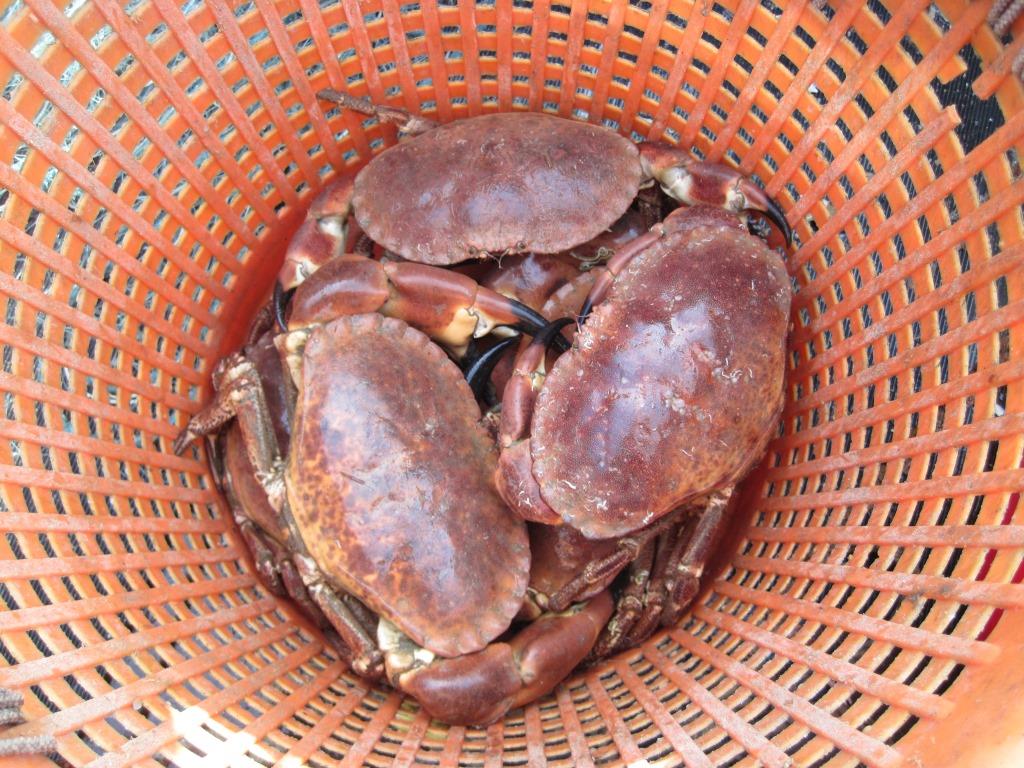Cornwall Wildlife Trust has carried out its annual winter seafood ratings review as part of the Cornwall Good Seafood Guide project and has launched a public consultation on proposed changes to ratings.
Among the changes are a downgrading of brown crab ratings from 3 to 4 (with 1 being the most sustainable and 5 the least sustainable rating).
A rating of 4 means that, for the first-time, pot caught brown crab is no longer on the Cornwall Good Seafood Guide recommended list. Lobster has also seen a change in sustainability score due to lack of management in this fishery, but its overall rating has remained the same.
Matt Slater, marine conservation officer at Cornwall Wildlife Trust, said: “Although potting is a relatively good fishing method in terms of its selectivity and environmental impacts, it can still be overdone. We believe that this fishery needs better management to cap the amount of fishing effort. Without urgent improved management this fishery could collapse and for this reason we are proposing to downgrade the rating for brown crab, meaning it will no longer be on our recommended list.
“We are fully supportive of Cornwall IFCA’s efforts to manage shellfish fisheries within Cornwall’s inshore waters, and of National Fisheries Management Plans which are in development, but we urge that significant improvements to manage this fishery are made rapidly.”
The crab and lobster fishery is arguably one of the most important fisheries in Cornwall. For many years, it has provided a living for over two hundred inshore fishers all around Cornwall’s coastline.
The fishing method used – potting – is a selective and low impact method. This, coupled with local bylaws on minimum sizes, has meant that this fishery has been productive for decades.
However, in recent years, the number of pots in use has dramatically increased. Research carried out by Cornwall Inshore Fisheries and Conservation Authority (CIFCA) has shown that the catches per pot (known as catch per unit effort [CPUE]) for brown crab has seriously declined – a strong indicator of overfishing.









